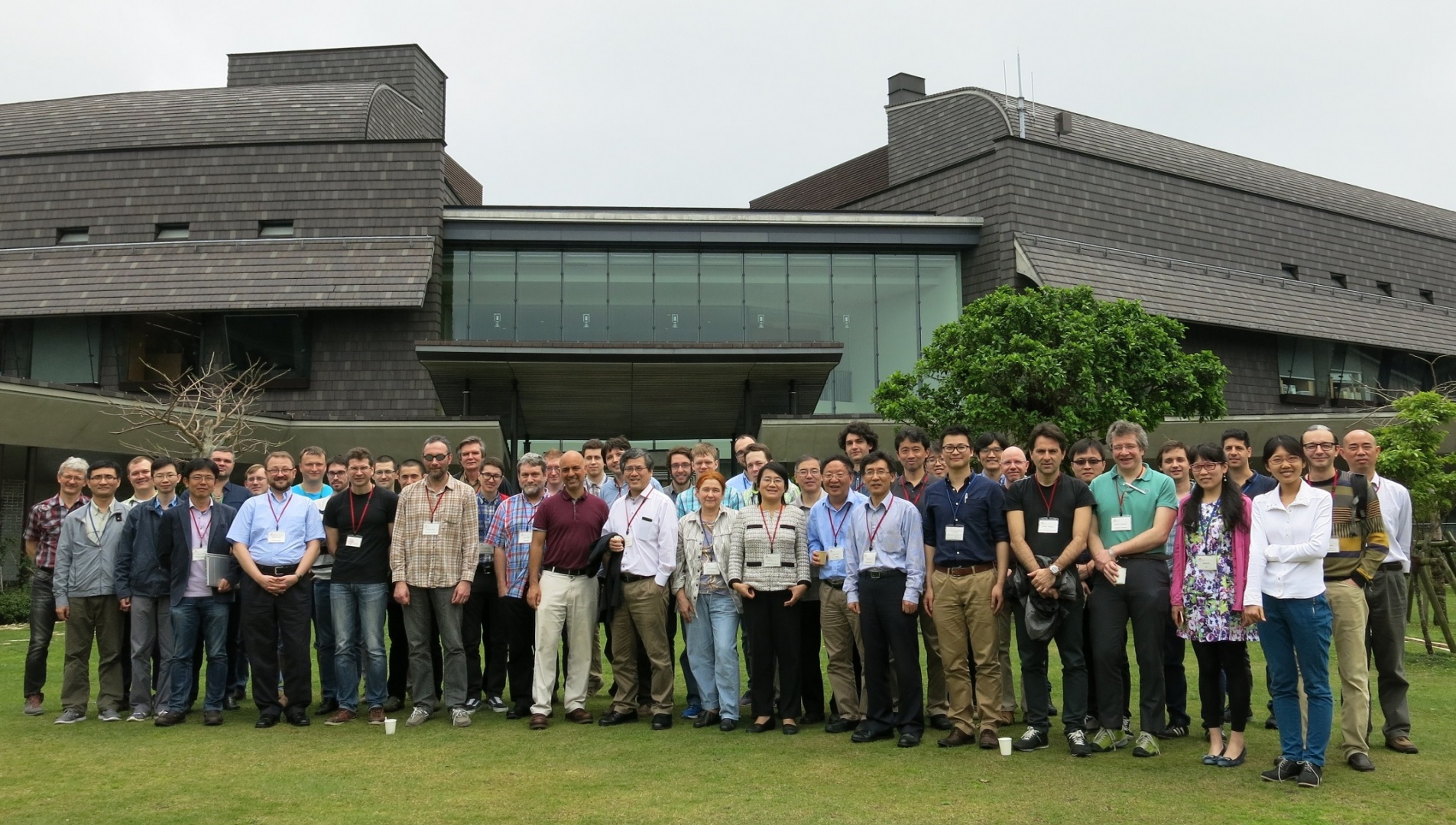RD2DS 2016
Recent Developments in 2D systems
2次元電子系における最近の進展
RD2DS-2016 April 4-8 Okinawa, Japan

Overview
The discovery of the integer quantum Hall effect in Si MOSFET by Klaus von Klitzing in 1980 (1985 Nobel Prize) has launched an exciting research field dealing with quantum phenomena in two-dimensional (2D) systems. Over the years, other successful realizations of 2D systems have become available, bringing further fascinating discoveries. One famous example is a modulation-doped GaAs/AlGaAs heterostructure which allowed the discovery of fractional quantum Hall effect in 1982 (1998 Nobel Prize). Another successful and very promising realization of a 2D system, which occurred in 2004, is graphene, a subject of a 2010 Nobel Prize awarded to Andre Geim and Konstantin Novoselov. More recent realizations, such as oxide interfaces, are also revealing intriguing new physics. Finally, non-degenerate electrons on the cryogenic substrates (e.g. liquid helium) also offer a fascinating platform to investigate quantum properties of 2D electrons.
The OIST workshop “Recent Developments in 2D systems” (RD2DS) aims to bring togther leading world experts and young researchers working on various aspects of 2D systems to discuss ongoing developments and exchange ideas on a variety of topics including
- Quantum Hall effects and related phenomena
- Graphene and graphene-based heterostructures
- Emergent 2D systems such as oxide heterostructures
- Topological phases of condensed matter
- Magneto-transport and magneto-spectroscopy
- Non-equilibrium phenomena
Logistics
The number of participants is strictly liminted to 58.
Important Dates:
- Begin Accepting Applications: October 31, 2015
- Application Deadline: November 30, 2015
- Notification of Application Results: December 20, 2015
- Participants arrive in Okinawa: April 3, 2016
- Participants depart Okinawa: April 9, 2016
Location: OIST Seaside House
OIST will handle the logistics of accommodation, travel, and meals for all workshop participants. OIST will also help with arranging visas when necessary.
Organization
Organizers
- Denis Konstantinov, OIST Graduate University
- Michael Zudov, University of Minnesota
Program Committee
- Koji Muraki, NTT basic Research Labs, Japan
- Kostya Novoselov, University of Manchester, UK
- Jurgen Smet, Max Planck Institute for Solid State Research, Germany
- Michael Zudov, University of Minnesota, USA
Invited Speakers
Ray Ashoori (Department of Physics, Massachusetts Institute of Technology, USA)
Aleksei Chepelianskii (Laboratoire de Physique des Solides, Universite Paris-Sud, France)
Gabor Csathy (Department of Physics and Astronomy, Purdue University, USA)
Keshav Dani (Femtosecond Spectroscopy Unit, OIST Graduate University, Japan)
Ivan Dmitriev (Quantum Many-Body Theory, Max Planck Institute for Solid State Research, Germany)
Rui-Rui Du (International Center for Quantum Materials, Peking University, China)
Sergei Dorozhkin (Institute of Solid State Physics of the Russian Academy of Sciences )
Lloyd Engel (Condensed Matter Science, National High Magnetic Field Laboratory, USA)
Sergei Ganichev (Department of Physics, University of Regensburg, Germany)
Yoshiro Hirayama (Department of Physics, Tohoku University, Japan)
Yoshihiro Iwasa (Department of Applied Physics and Quantum-Phase Electronics Center, University of Tokyo, Japan)
Jun Sung Kim (Department of Physics, Pohang University of Science and Technology, Korea)
Denis Konstantinov (Quantum Dynamics Unit, OIST Graduate University, Japan)
Jeanie Lau (Department of Physics and Astronomy, University of California Riverside, USA)
Li Lu (Institute of Physics, Chinese Academy of Sciences, China)
Tomoki Machida (Institute of Industrial Science, University of Tokyo, Japan)
Alberto Morpurgo (Department of Physics, University of Geneva, Switzerland)
Koji Muraki (Quantum Solid State Physics Research Group, NTT Basic Research Laboratories, Japan)
Vittorio Pellegrini (Graphene Labs, Italian Institute of Technology, Italy)
Jurgen Smet (Solid State Nanophysics, Max Planck Institute for Solid State Research, Germany)
Sergei Studenikin (Quantum Physics Group, National Research Council Canada, Canada)
Qi-Kun Xue (Department of Physics, Tsinghua University, China)
Vlad-Stefan Pribiag (School of Physics and Astronomy, University of Minnesota )
Amir Yacoby (Department of Physics, Harvard University, USA)
Michael Zudov (School of Physics and Astronomy, University of Minnesota, USA)
Programme
Programme overview (printable)
Programme (printable)
* updated 20160404



